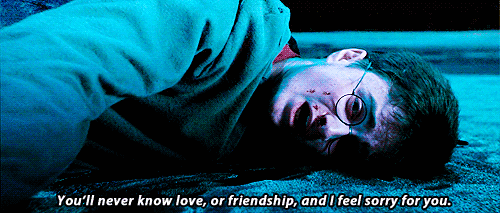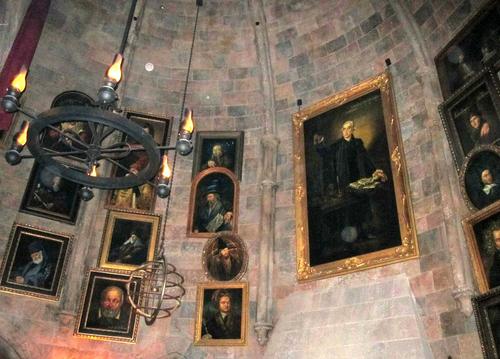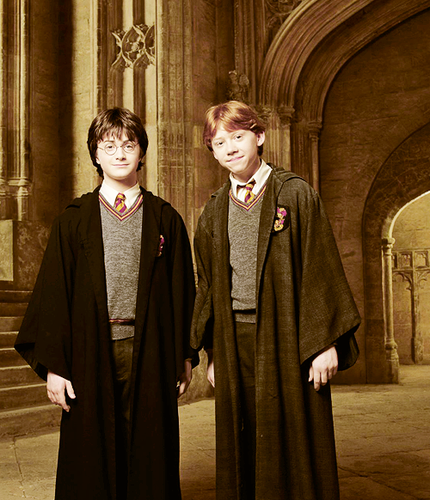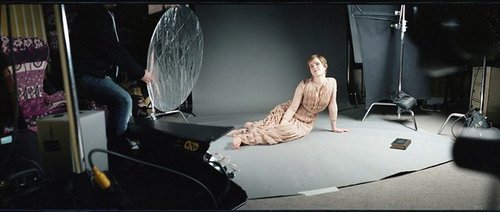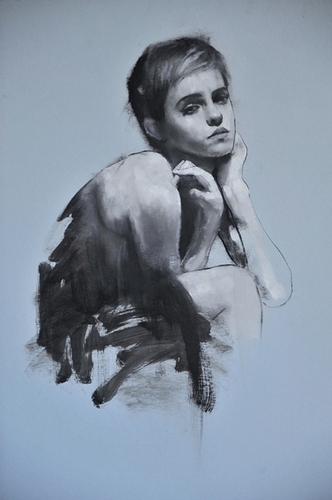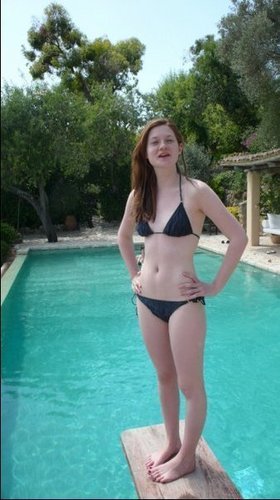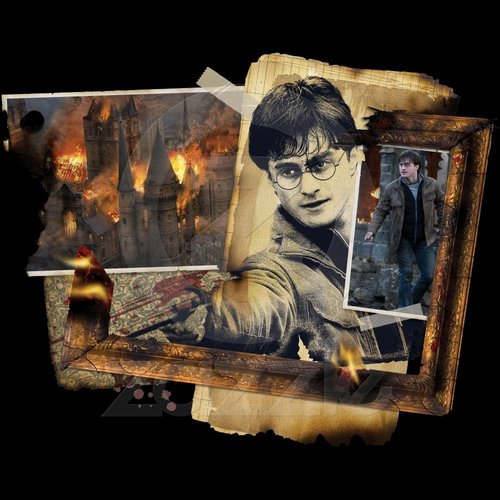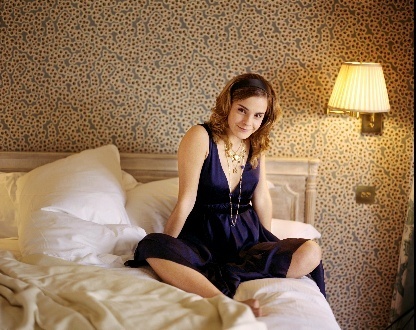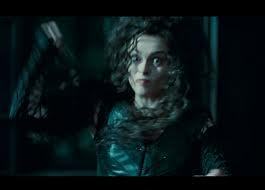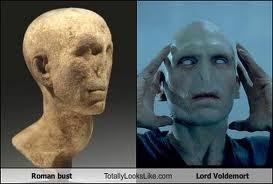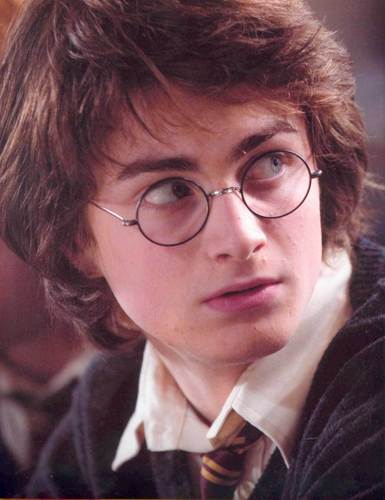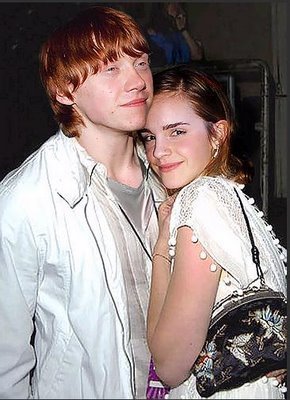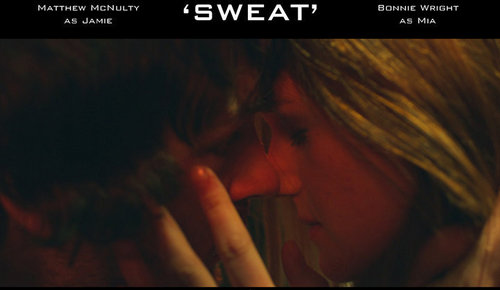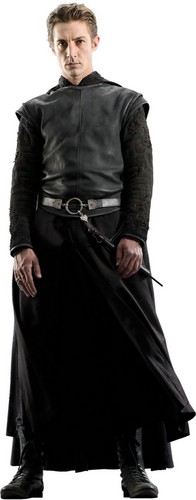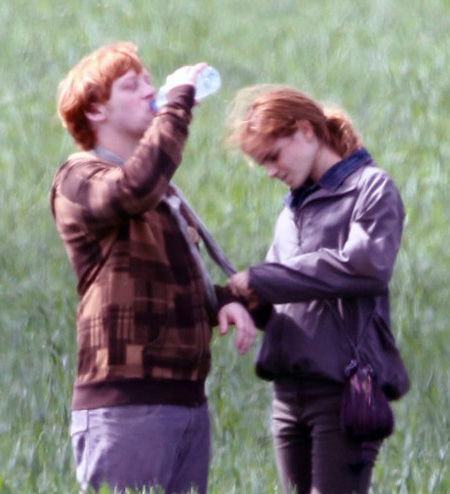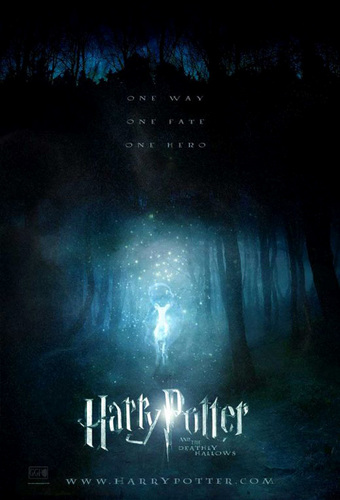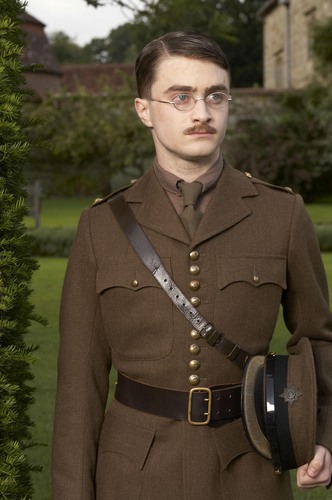Here's a comparison and contrast essay I wrote for school - keep in mind my English teacher has never read Harry Potter, so I had to explain stuff.
When comparing a book and a film, hoặc something similar, the first thing one thinks about is obviously the plot. And in Harry Potter and the Half-Blood Prince, at first glance, you'll find it's rather similar in both the book and the film. Harry, Ron and Hermione, the main trio, go to Hogwarts School of Witchcraft and Wizardry for their sixth year. They're shocked when they find out that ex-Potions Master Severus Snape has been named Defence Against the Dark Arts Professor. They wonder who the mysterious Half-Blood Prince is, seeing as Harry has inherited his old Potions book. They start to suspect that fellow student Draco Malfoy has been made a Death Eater – follower of Lord Voldemort, their nemesis. They go to visit Hogsmeade, the wizarding village near Hogwarts, and are shocked when another fellow student, Katie Bell, is cursed. Basically, in both the book and the film, they have a normal start to their school năm – as normal as a năm at Hogwarts can be.
Now, this is where the plots begin to differ. In the book, Headmaster of Hogwarts Albus Dumbledore begins to give Harry private lessons, in which he shows Harry memories relating to Voldemort and his Horcruxes (pieces of his soul sealed in inanimate objects); whereas in the book, the school năm continues rather normally. During the giáng sinh holidays, Harry visits his friend Ron's house, but where JK Rowling gave him the relief of a quiet giáng sinh with his friends, Yates decided that now was the perfect opportunity for Death Eaters to attack the house and burn it to the ground. Not really such a wise move, seeing as a wedding is supposed to happen there the following summer... but if Yates got himself into that mess, I'll just suppose he can get himself out.
After a while of normal school in the Easter term, however, both the tác giả and the director decide that something must happen, lest the story get too dull. So they both decide to have Harry meet Malfoy, resulting in a duel of sorts. Harry is running out of spells at this point, and decides to use one he saw in his Potions book: Sectumsempra. This spell basically tears great holes in your opponent, and Harry is horrified bởi the damage he has caused. He makes to run away, but is stopped bởi Snape, who 'just happened' on the scene – it probably has nothing to do with the fact that Malfoy's mother made Snape swear to protect Malfoy. So far, so similar... but apparently, JK Rowling favours stricter punishments than director David Yates and screenwriter Steve Kloves do. She has Snape give Harry Saturday detentions for the rest of the year, meaning he'll miss the Quidditch final – even though he's captain of his team. Whereas from the film duo... nothing. Nada. Nil. No punishments, even though Malfoy might have died, had Snape not 'happened' on the scene. However, the even convinces Harry he needs to hide the Prince's book, just in case something like this happened again.
His chosen place is the Room of Requirement, a room that will become whatever the user needs it to be. He leaves the Prince's book there, and the book tells us this is the end of it – but it seems David Yates had other ideas. He knew that this is the năm Harry gets together with Ginny Weasley, his future wife and best Những người bạn little sister, but for some reason he ignored the perfectly good scene in the book where Harry kisses Ginny after she wins the Quidditch match for them, and instead had Ginny Kiss Harry in the Room of Requirement. And as if that's not enough to make so-called Harry/Ginny-shippers (people who tình yêu the pair together) mad, he adds fuel to the ngọn lửa, chữa cháy bởi not hiển thị their relationship at all throughout the rest of the film.
After this, the plots seem to meet each other again. In both versions, Dumbledore asks Harry to accompany him to a rock in the middle of the ocean, where he believes a Horcrux is hidden, and Harry agrees. They go there, get the Horcrux, come back... nothing bạn wouldn't expect – because that part starts after they return to Hogwarts. Death Eaters have invaded the castle, and are there to meet them once they arrive. They are very much caught unaware, and this results in many things, but most importantly Dumbledore dying while Harry watches, helpless, invisible and Nữ hoàng băng giá (by magic).
Once Dumbledore is dead, the Full Body-Bind curse he put on Harry breaks, so he can move. But he doesn't, for a while; he is too shocked. When he finally does move, it's slightly too late – the Death Eaters have gone. So, long story short, he tracks them down and challenges Snape, the one who's hand Dumbledore died by, to a duel. In both the book and the film, they duel, but thanks to special effects the film is slightly thêm effective in communicating the atmosphere to most readers/viewers.
At this point, apparently, the film duo had long since run out of ideas for their own little side trips and decided to keep to the plot, because the rest is rather similar, with one final exception: Dumbledore's funeral. In the book, it is a magnificent affair, but perhaps the film was edging closer to it's time limit, since it was completely left out.
Both the book and the film end with the same scene, which is rather atypical for this franchise: Harry telling Ron and Hermione that the Horcrux was, in fact, a fake, and that he is going to look for it and others of its kind instead of going back to school tiếp theo year. Of course, Ron and Hermione immediately declare their intentions to follow him, and Harry oh-so-nobly denies them – initially. He does give in rather fast, seeing as nobody would want to embark on such an adventure alone.
As probably everyone knows, films are rather expensive projects. This one, for example, had an estimated budget of £250,000,000. That's two hundred and fifty million pounds, folks. However, one might say that it paid itself back, since it grossed over £76,000,000 on it's opening weekend alone – and that figure only includes data from five countries. It's tổng thể gross as of December 17 2009 was dancing around £254,000,000, and Merlin only knows how much it's earned since then.
Controversially, while the book cost near nothing to write – if we assume that Rowling was already in possession of a computer with a word processing program – it sold 9,000,000 copies in the first 24 hours in the UK and USA. And remember: this was 2005.
The cast and crew of the film was reported to number some few hundred people, starting with the actors and ending with the director's assistants and minibus drivers. They all came together to create a 2,5 giờ film, which is generally viewed in one sitting, while Rowling, working alone, wrote 600 pages. Considering how fast a somewhat normal person reads, this guarantees at least 7-10 hours enjoyment that can be interrupted, carried around and experienced over and over.
So I guess what I'm trying to say with that last sentence is that the experience of đọc a book is completely different to the experience of watching a film, and nobody has a right to declare that one is better than the other. This is an issue that will always be discussed, especially now that thêm and thêm sách are being turned into films and thêm stand-alone films are being made simply in the hopes of making profit, and not because they have a story to tell. But, I digress: as I was saying, nobody can declare ones superiority over the other. A person like me would be the first to say that, in my opinion, sách are better since they really give bạn an in-depth look into the thoughts and emotions of characters, and since an tác giả can spend five pages describing a sweet cửa hàng if (s)he so wants, and because most often written action sequences are easier to understand than ones bạn see. However, a person less literately inclined would prefer films, because bạn can see the environment, and the action, and because bạn can hear the sounds, and in the future you'll probably be able to smell the blood – hoặc the roses, whichever one relates to the situation. They are both right, since it's entirely a matter of opinion.
So, in other words, there is a lot of the same material in both the book and the film, even if they are fundamentally different. This leads to the fact that while they have the same target audiences, some will favour the book and some will favour the film. This is how it's been up until now, and this is probably how it'll continue until a time when (shudder) sách have become obsolete.
When comparing a book and a film, hoặc something similar, the first thing one thinks about is obviously the plot. And in Harry Potter and the Half-Blood Prince, at first glance, you'll find it's rather similar in both the book and the film. Harry, Ron and Hermione, the main trio, go to Hogwarts School of Witchcraft and Wizardry for their sixth year. They're shocked when they find out that ex-Potions Master Severus Snape has been named Defence Against the Dark Arts Professor. They wonder who the mysterious Half-Blood Prince is, seeing as Harry has inherited his old Potions book. They start to suspect that fellow student Draco Malfoy has been made a Death Eater – follower of Lord Voldemort, their nemesis. They go to visit Hogsmeade, the wizarding village near Hogwarts, and are shocked when another fellow student, Katie Bell, is cursed. Basically, in both the book and the film, they have a normal start to their school năm – as normal as a năm at Hogwarts can be.
Now, this is where the plots begin to differ. In the book, Headmaster of Hogwarts Albus Dumbledore begins to give Harry private lessons, in which he shows Harry memories relating to Voldemort and his Horcruxes (pieces of his soul sealed in inanimate objects); whereas in the book, the school năm continues rather normally. During the giáng sinh holidays, Harry visits his friend Ron's house, but where JK Rowling gave him the relief of a quiet giáng sinh with his friends, Yates decided that now was the perfect opportunity for Death Eaters to attack the house and burn it to the ground. Not really such a wise move, seeing as a wedding is supposed to happen there the following summer... but if Yates got himself into that mess, I'll just suppose he can get himself out.
After a while of normal school in the Easter term, however, both the tác giả and the director decide that something must happen, lest the story get too dull. So they both decide to have Harry meet Malfoy, resulting in a duel of sorts. Harry is running out of spells at this point, and decides to use one he saw in his Potions book: Sectumsempra. This spell basically tears great holes in your opponent, and Harry is horrified bởi the damage he has caused. He makes to run away, but is stopped bởi Snape, who 'just happened' on the scene – it probably has nothing to do with the fact that Malfoy's mother made Snape swear to protect Malfoy. So far, so similar... but apparently, JK Rowling favours stricter punishments than director David Yates and screenwriter Steve Kloves do. She has Snape give Harry Saturday detentions for the rest of the year, meaning he'll miss the Quidditch final – even though he's captain of his team. Whereas from the film duo... nothing. Nada. Nil. No punishments, even though Malfoy might have died, had Snape not 'happened' on the scene. However, the even convinces Harry he needs to hide the Prince's book, just in case something like this happened again.
His chosen place is the Room of Requirement, a room that will become whatever the user needs it to be. He leaves the Prince's book there, and the book tells us this is the end of it – but it seems David Yates had other ideas. He knew that this is the năm Harry gets together with Ginny Weasley, his future wife and best Những người bạn little sister, but for some reason he ignored the perfectly good scene in the book where Harry kisses Ginny after she wins the Quidditch match for them, and instead had Ginny Kiss Harry in the Room of Requirement. And as if that's not enough to make so-called Harry/Ginny-shippers (people who tình yêu the pair together) mad, he adds fuel to the ngọn lửa, chữa cháy bởi not hiển thị their relationship at all throughout the rest of the film.
After this, the plots seem to meet each other again. In both versions, Dumbledore asks Harry to accompany him to a rock in the middle of the ocean, where he believes a Horcrux is hidden, and Harry agrees. They go there, get the Horcrux, come back... nothing bạn wouldn't expect – because that part starts after they return to Hogwarts. Death Eaters have invaded the castle, and are there to meet them once they arrive. They are very much caught unaware, and this results in many things, but most importantly Dumbledore dying while Harry watches, helpless, invisible and Nữ hoàng băng giá (by magic).
Once Dumbledore is dead, the Full Body-Bind curse he put on Harry breaks, so he can move. But he doesn't, for a while; he is too shocked. When he finally does move, it's slightly too late – the Death Eaters have gone. So, long story short, he tracks them down and challenges Snape, the one who's hand Dumbledore died by, to a duel. In both the book and the film, they duel, but thanks to special effects the film is slightly thêm effective in communicating the atmosphere to most readers/viewers.
At this point, apparently, the film duo had long since run out of ideas for their own little side trips and decided to keep to the plot, because the rest is rather similar, with one final exception: Dumbledore's funeral. In the book, it is a magnificent affair, but perhaps the film was edging closer to it's time limit, since it was completely left out.
Both the book and the film end with the same scene, which is rather atypical for this franchise: Harry telling Ron and Hermione that the Horcrux was, in fact, a fake, and that he is going to look for it and others of its kind instead of going back to school tiếp theo year. Of course, Ron and Hermione immediately declare their intentions to follow him, and Harry oh-so-nobly denies them – initially. He does give in rather fast, seeing as nobody would want to embark on such an adventure alone.
As probably everyone knows, films are rather expensive projects. This one, for example, had an estimated budget of £250,000,000. That's two hundred and fifty million pounds, folks. However, one might say that it paid itself back, since it grossed over £76,000,000 on it's opening weekend alone – and that figure only includes data from five countries. It's tổng thể gross as of December 17 2009 was dancing around £254,000,000, and Merlin only knows how much it's earned since then.
Controversially, while the book cost near nothing to write – if we assume that Rowling was already in possession of a computer with a word processing program – it sold 9,000,000 copies in the first 24 hours in the UK and USA. And remember: this was 2005.
The cast and crew of the film was reported to number some few hundred people, starting with the actors and ending with the director's assistants and minibus drivers. They all came together to create a 2,5 giờ film, which is generally viewed in one sitting, while Rowling, working alone, wrote 600 pages. Considering how fast a somewhat normal person reads, this guarantees at least 7-10 hours enjoyment that can be interrupted, carried around and experienced over and over.
So I guess what I'm trying to say with that last sentence is that the experience of đọc a book is completely different to the experience of watching a film, and nobody has a right to declare that one is better than the other. This is an issue that will always be discussed, especially now that thêm and thêm sách are being turned into films and thêm stand-alone films are being made simply in the hopes of making profit, and not because they have a story to tell. But, I digress: as I was saying, nobody can declare ones superiority over the other. A person like me would be the first to say that, in my opinion, sách are better since they really give bạn an in-depth look into the thoughts and emotions of characters, and since an tác giả can spend five pages describing a sweet cửa hàng if (s)he so wants, and because most often written action sequences are easier to understand than ones bạn see. However, a person less literately inclined would prefer films, because bạn can see the environment, and the action, and because bạn can hear the sounds, and in the future you'll probably be able to smell the blood – hoặc the roses, whichever one relates to the situation. They are both right, since it's entirely a matter of opinion.
So, in other words, there is a lot of the same material in both the book and the film, even if they are fundamentally different. This leads to the fact that while they have the same target audiences, some will favour the book and some will favour the film. This is how it's been up until now, and this is probably how it'll continue until a time when (shudder) sách have become obsolete.


